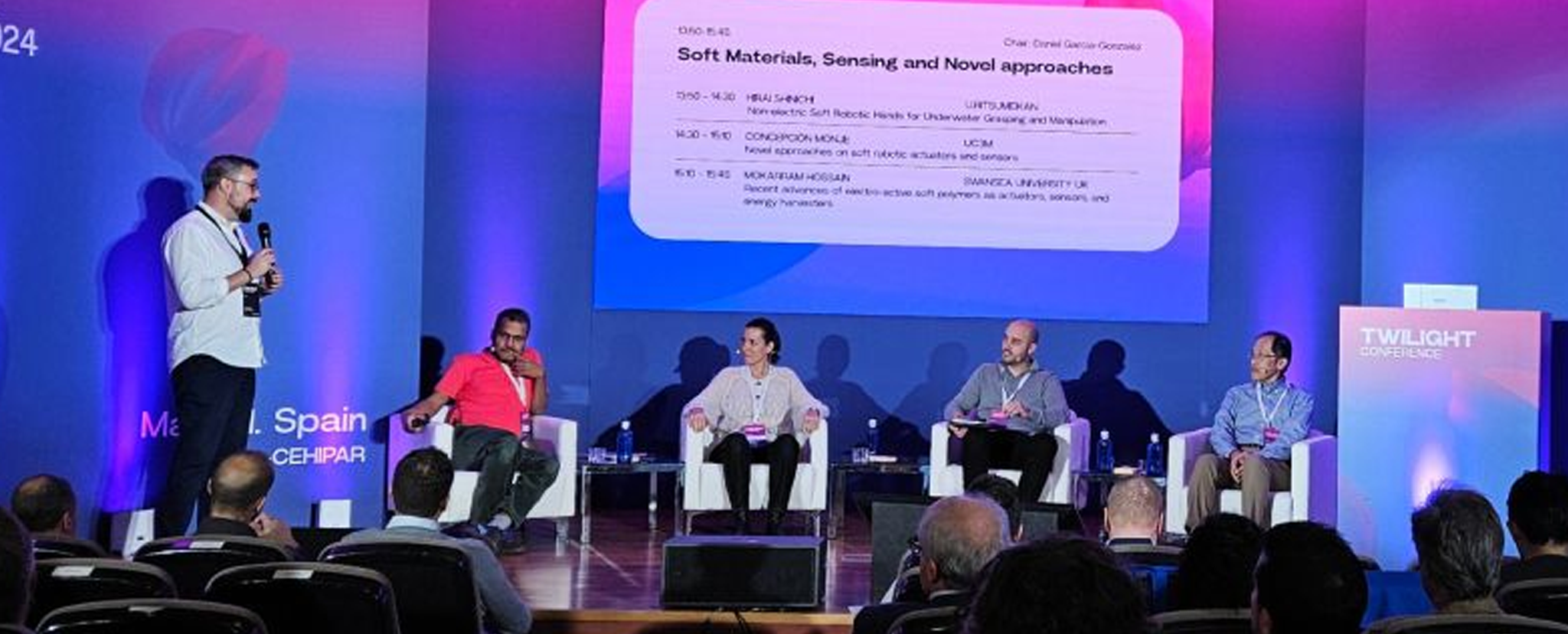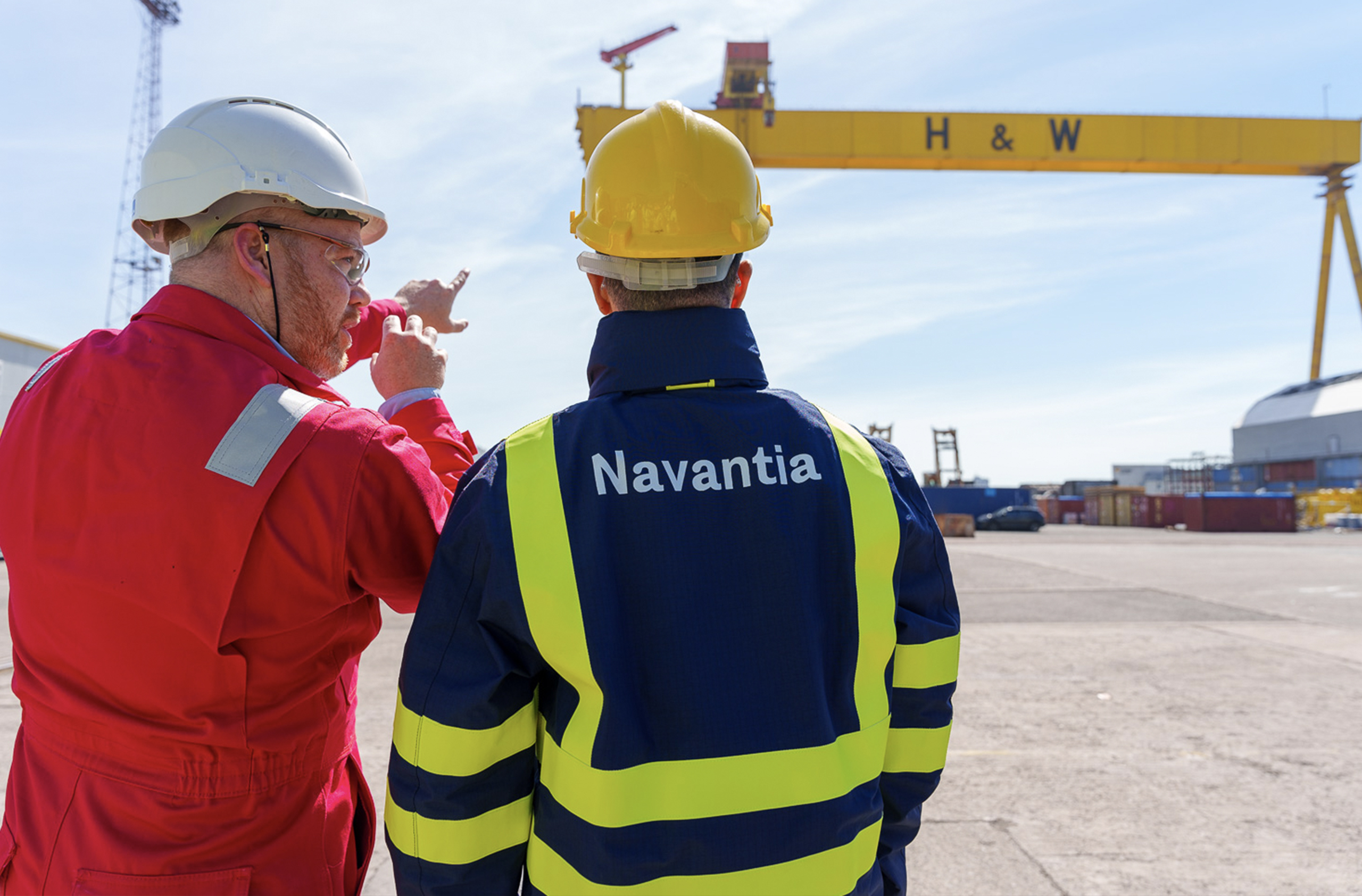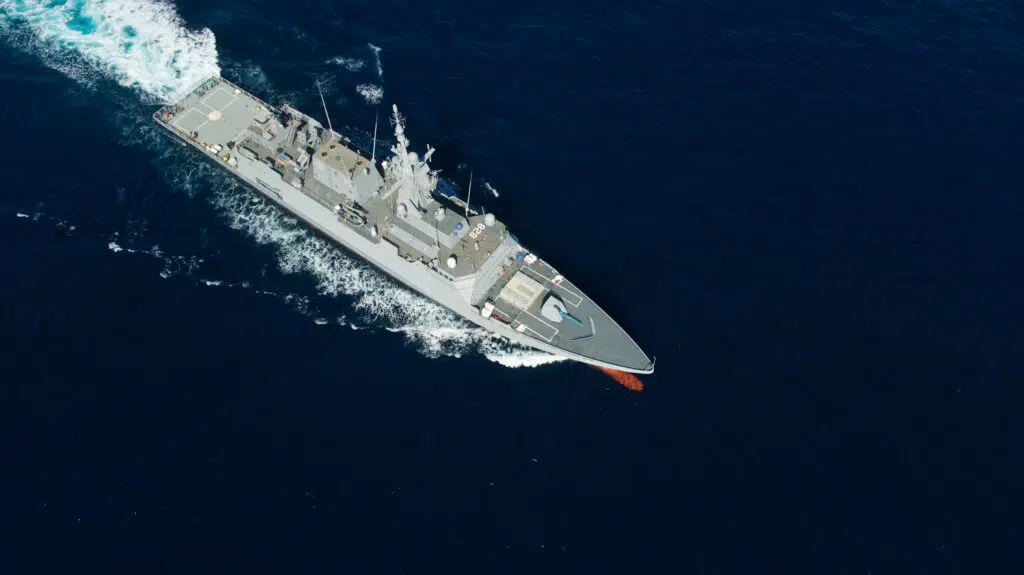Scientific conference on bio-inspired underwater robotics concludes with the launch of a challenge to the international scientific community
From the 21st to the 22nd of November, “The Twilight Conference” was held in Madrid, an international forum aimed at exploring technologies that will contribute to the development of a new generation of bio-inspired and autonomous underwater robots.
Organised by monodon by Navantia, with sponsorship from SAES and the Young Academy of Spain, the event took place at the Canal de Experiencias Hidrodinámicas de El Pardo, part of the Instituto de Técnica Aeroespacial (INTA). The event was streamed live on YouTube and Twitch.
Over two days, high-level international scientists gathered to discuss the future of underwater drones, new materials, challenges in topological analysis, and underwater communication, among other topics. Notable attendees included Samuel Sánchez (IBEC Barcelona, MIT Innovator Under 35 Award, Princess of Girona Foundation Award for Scientific Research, among other distinctions); Daniel García González (UC3M, National Research Award for Young People 2023); Katherine Villa (Institute of Chemical Research of Catalonia); and Abdon Pena Francesch (University of Michigan, Materials Science and Engineering).
“The Twilight Conference” featured the presence and participation of top-level international speakers from Japan, the United States, Australia, the United Kingdom, the Netherlands, Denmark, and Spain. The presentations covered new materials, biomaterials and nanomaterials; bio-inspired and soft robotics; soft and fluid-based mechanisms; neuromorphic computing and robotic autonomy; underwater communication; and drone swarms.
Additionally, speakers and attendees enjoyed a guided tour of INTA’s hydrodynamic facilities, where the navigation of all types of ships (both military and civilian) has been researched for almost a century. The so-called “Calm Waters Channel” is one of the largest in the world, measuring 320 metres in length, 12.5 metres in width, and almost 7 metres in depth.
In addition to sharing the latest scientific advances, new collaboration opportunities emerged throughout the conference to develop these innovative technologies in the coming years.
“This conference has been organised to advance the development of underwater drones. In most cases, bio-inspired technologies are used, and we are analysing new materials, energy harvesting, chemical propulsion, and other scientific innovations and systems that we believe will greatly contribute to the challenge we have launched,” says Patricia Sierra, Innovation Lead at monodon.
The monodon challenge
Design an autonomous, bio-inspired vehicle capable of underwater exploration at depths of over 200 metres. This is the challenge that monodon has launched to the international scientific community.
The year-long challenge was launched on Friday, the 22nd of November, at the end of the “Twilight Conference,” a scientific conference named after the maritime zone between 200 and 1,000 metres deep.
Each proposal must focus on one or a combination of the following research topics: bio-inspired aquatic locomotion, flexible structures for underwater environments, materials and manufacturing methods for underwater environments, sensing capabilities, energy-efficient and self-sufficient operation, and/or underwater optical communication.
The challenge will culminate with the selection of winners in three categories, who will receive support from the promoters to publish their research, investigate their proposal in a laboratory, or develop a prototype.
“Underwater robotics will have enormous potential for scientific applications, exploration, or monitoring of critical underwater infrastructure. Learning from nature and developing bio-inspired vehicles will increase energy efficiency, sensing capabilities, and manoeuvrability. On the other hand, research into new materials is essential for the adaptability and survival of these devices in high-pressure underwater conditions,” explains Patricia Sierra, Innovation Lead at monodon.
All information about the challenge can be found at the Challenge – Twilight Conference. Applicants can register for the challenge starting on the 1st of December.
Defence Secretary Ben Wallace said:
“This news will be a significant boost to the UK shipbuilding industry. By selecting Team Resolute, the Ministry of Defence has chosen a proposal which includes £77 million of investment into the UK shipyards, creating around 2,000 UK jobs, and showcasing cutting-edge British design.”
“Building on ambitions laid out in the National Shipbuilding Strategy, this contract will bolster technology transfer and key skills from a world-renowned shipbuilder, crucial in the modernisation of British shipyards.”
The contract aims to deliver 200 further education opportunities on graduate placements and apprentice programmes, as well as supporting thousands more supply chain jobs. Harland & Wolff’s welding academy is set to train 300 new UK welders during the contract. The contract would also support 120 high-skilled jobs at BMT.
Delivering on ambitions to bolster UK shipbuilding as laid out in the National Shipbuilding Strategy Refresh, the contract aims to deliver significant capital investment in the UK while providing ships which are essential to the Carrier-led Maritime Strike Group.
Secretary of State for Northern Ireland, Chris Heaton-Harris said:
“Congratulations to Team Resolute, which includes the historic Belfast shipbuilding firm Harland and Wolff, for being selected as preferred bidders.”
“This announcement is a fantastic testimony to Belfast’s shipbuilding heritage and reputation for innovation and expertise.”
“The jobs and investment which this will deliver to Northern Ireland and the rest of the UK will create life-changing opportunities, while the training of hundreds of new UK welders will ensure a bright future for local industry.”
Designed to support Net Carbon Zero by the end of their 30-year service lives, the RFA vessels will be equipped with energy efficient technologies to reduce power demand and will have the capability to reduce their carbon intensity by adopting low-carbon, non-fossil fuels and future energy sources.
Vice Admiral Paul Marshall, DE&S Director General Ships, said:
“FSS will deliver worldwide logistic and operational support to the Royal Navy, including the Maritime Strike Group on deployment.”
“Significant investment in emerging shipyards across the UK will also strengthen and diversify our industrial base. Alongside our investment in the Type 26 and Type 31 frigate programmes, this breadth will be vital to grow and support a highly capable and modern Navy.”
Production is due to start in 2025 and all three support ships are expected to be operational by 2032. The manufacture contract is due to be awarded by DE&S by the first quarter of 2023, subject to completion of a successful preferred bidder stage and final approvals.





